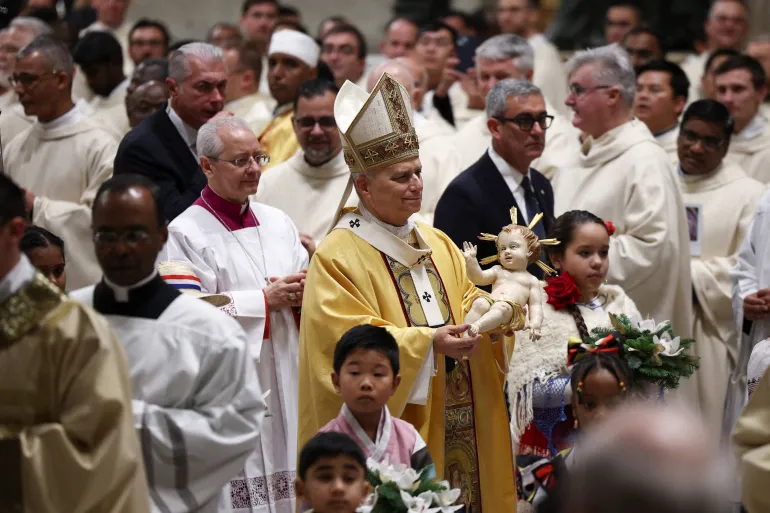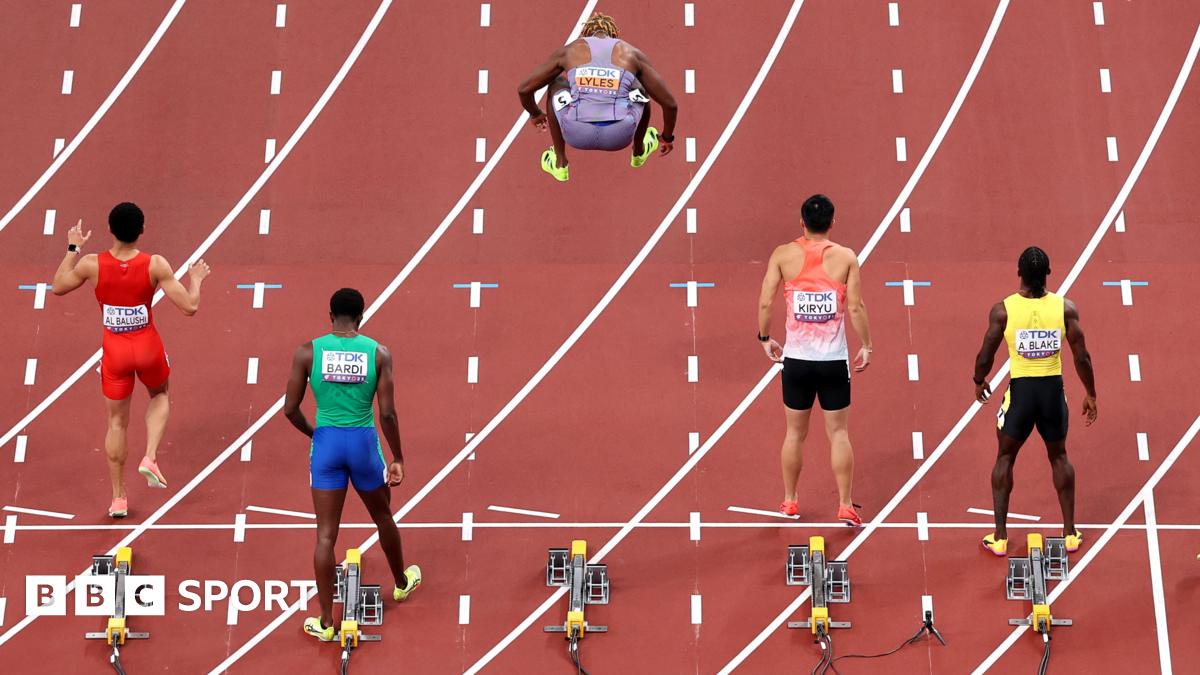The English counties with the most free family activities from pony sanctuaries and steam railways to soft plays
WE’VE taken a look at how to spend a family day out for FREE across multiple locations in the UK.
We’ve pinpointed three UK counties brimming with free activities for all ages, ensuring everyone stays entertained without spending a single penny.
And with activities covered for all ages, you can be sure there’ll be no getting bored.
Sussex: Beach days, railways and pirate festival
Across Sussex there are plenty of free things to do, meaning that you can take the kids out for an action-packed day of activities without breaking the bank.
If you’re visiting when the sun’s out, head to one of the many beautiful beaches in the county.
Camber Sands is perfect for families with its sprawling stretches of golden sands, perfect for bucket and spade days and paddling in the water.
Read more on cheap days out
It’s a top choice due to its nearby facilities including parking, cafes and loos – perfect for parents of young children.
A sunny day is also the perfect time to go for a family bike ride.
The South Coast East route will take you along the coast, past stunning cliffs and landscapes.
And if the children (or Dad) are into steam trains, there’s multiple ways to enjoy them in Sussex – without booking a pricey ticket.
Most read in Best of British
The Bluebell Railway is a great spot to visit, with its interactive “SteamWorks” exhibition at Sheffield Park station, and its own outdoor playground at Kingscote station.
There is no charge for platform entry on non-service days, and the gifts and models shop often remains open on these days too – just check their website ahead of time.
You can also head to Hotham Park, a short walk from Bognor Regis town centre, where there’s a popular miniature railway.
The park is free to enter if you’re wanting to stroll and have a look around.
But there’s loads to see and do for an optional small fee, such as crazy golf, a boating lake and kids’ adventure play area.
And if you do visit with some change in your pocket, the Hotham Park Railway is only £2.50 for adults and £2 for kids (under 2s go free).
Sun reader Nora Hinds, 69, from Hounslow, recommends Hastings in Sussex for its annual Pirate Festival.
She said: “Hastings is brilliant for live music, with lots of events on the seafront like the pirate festival.
It’s a pirate-themed weekend with free things to do including a treasure hunt, craft workshops and kids pirate tattoos.
Lastly, Sussex is home to some fantastic free museums.
The Shipwreck Museum is free to enter, and is full of fascinating maritime artifacts.
Sue Mercer, 62, from Pagham recommends The Novium Museum in Chichester for families.
It also has free entry, and kids can learn about history covering the Stone Ages to the Saxons.
Lincoln: Horse sanctuary, lakeside picnics and history museums
There’s loads of free and cheap things to do for families in Lincolnshire.
So much so, that there’s a Facebook group with more than 15,000 members sharing free things to do with the kids “in and around Lincoln”.
If you’ve got any mini history buffs in the family, they’ll enjoy a visit to the Museum of Lincolnshire Life.
The museum takes a deep dive into life in the county, from 1750 to the present day.
There’s an authentic WWI tank, interactive exhibitions and group quiz sessions.
Similarly, The Lincoln Museum is another indoor attraction well-worth the visit.
Aside from the fascinating exhibitions, it offers “Play at The Lincoln Museum” – a free activity centre packed with activities for younger children and a play zone for babies.
For older kids, there’s lots of interactive games and trails too.
Alternatively, just 20 minutes from Lincoln you’ll find Bransby Horses.
The charity owns a 600-acre site which is home to over 300 horses, ponies, donkeys and mules.
Visitors can walk through to admire the animals and set up for lunch at the designated picnic area.
There’s also a play park, cafe and gift shop.
Entry is free, although donations are recommended upon visiting to support the charity.
Sun reader Sarah Al-Aidi recommends Hubbard’s Hills – a vast green space near Louth with plenty of trees and a water valley.
“It’s a real beauty spot with great picnic areas, dog walking trails and nature walks” she says.
In the park you’ll find a play area and plenty of scenic picnic spots by the river – and it’s a great place to bring the dog, too.
Devon: Free soft play, giant animal models and discovery trails
Whilst Devon is known for it’s family-friendly beaches, there’s more to it than building sandcastles and wasting away your change at the arcades.
One of the best ways to explore the county is by undertaking one of its many outdoor discovery trails.
Haldon Forest near Exeter has a popular family activity trail which often has new themes depending on the time of year.
It’s a beautiful winding trail which ends at a picnic spot, home to an impressive Gruffalo sculpture.
And for kids of all ages, geo-caching can make for an exciting and energy-burning day out – and can get your kids away from their screens.
Geo-caching in Dartmoor or Exmoor National Parks is a fantastic way to get the kids to explore the outdoors.
Hidden around the parks you’ll find stashes of hidden items known as caches.
They’ll often have quirky items in to trade, as well as a log book to record your win finding the geo-cache.
In fact geo-caching happens all over the UK, and all the rules are on the geo-caching website.
Plus, the Royal William Yard Geo Trail in Plymouth is a fascinating look back in time to 380 million years ago.
And whilst you’re visiting Plymouth, dads can make the most of free soft play.
“On Thursdays, Barnardo’s runs a Dads and Dinkies session, which is free soft play for dads and the children” says Gem Krupa, Holiday Home Sales Manager at Challaborough Bay holiday park.
“Mums can have a rest while Dads take the kids down to the YMCA for a play.”
The free soft play sessions take place every Thursday at 1.30pm. Just make sure to prebook first!
Lastly, on the outskirts of Dartmoor in Bovey Tracey you can’t skip out on The Jolly Roger.
Here you’ll find incredible showrooms displaying giant animal and dinosaur models – and the best part is, it’s free to visit.
There’s also models of race cars, fairies, and at Christmas time the showroom even gets decked out with Santas and sleighs.
YFQ-48A ‘Fighter Drone’ Designation Given To Northrop Grumman’s Talon By USAF
The U.S. Air Force has formally designated Northrop Grumman’s Project Talon drone as the YFQ-48A and described it as a “strong contender” to be part of its future Collaborative Combat Aircraft (CCA) fleets. This follows news that the service has handed contracts to nine companies to refine a wide array of designs under Increment 2 of its CCA program. Northrop Grumman, together with its subsidiary Scaled Composites, only lifted the lid on Project Talon earlier this month, as you can read more about in our initial report here.
YFQ-48A is the third ‘fighter drone’ designation the U.S. military has now applied to a CCA-type design. The service announced in March that the drones General Atomics and Anduril have been developing under Increment 1 of the CCA program had received the designations YFQ-42A and YFQ-44A, respectively. However, the Project Talon design is not part of Increment 1, as we will come back to later on.
“The MDS designation highlights the ongoing partnership between the Air Force and Northrop Grumman and acknowledges the continued progress of the YFQ-48A as a strong contender in the CCA program,” according to an official Air Force release.

“We are encouraged by Northrop Grumman’s continued investment in developing advanced semi-autonomous capabilities,” Air Force Brig. Gen. Jason Voorheis, the service’s Program Executive Officer for Fighters and Advanced Aircraft, said in a statement. “Their approach aligns with our strategy to foster competition, drive industry innovation, and deliver cutting-edge technology at speed and scale.”
“Northrop Grumman’s commitment to innovation, low-cost manufacturing, and calculated risk-taking aligns perfectly with the CCA acquisition strategy and the Secretary of War’s Acquisition Transformation Strategy,” Air Force Col. Timothy Helfrich, Director of the Agile Development Office, also said. “Project Talon is a testament to their ability to push boundaries and experiment with new technologies, ultimately advancing solutions that could enhance the future of airpower.”
While details about the Project Talon drone itself remain limited, Northrop Grumman has made clear that it is based on lessons learned from its losing entry in the Increment 1 competition. The company has said that its Increment 1 design was at the higher end of the performance and capability spectrum, and had a price to match. Talon, by extension, has been described as “cheaper and better” and “significantly different” from the Increment 1 offering, and a first flight is now targeted for late next year. You can learn more about what TWZ has been able to glean so far here.
“Northrop Grumman remains in a vendor pool that can compete for future efforts, including the Increment 1 production contract and subsequent increments,” an Air Force spokesperson told TWZ when asked about the current relationship of Northrop Grumman and Project Talon to the CCA program.
“As the Air Force continues to advance the CCA program, the ongoing collaboration with Northrop Grumman and the defense and aerospace industry will ensure that the Air Force remains at the forefront of airpower innovation,” the Air Force’s release today also noted. “These types of partnerships will help the Air Force meet the challenges of an increasingly complex and competitive global security environment while maintaining the technological superiority necessary to prevail in future conflicts. “


TWZ has also reached out to Northrop Grumman. Northrop Grumman and Scaled Composites have also previously said that Project Talon, which has been described so far as a demonstrator effort, is not explicitly aimed at a particular contract opportunity, such as the Air Force CCA program’s Increment 2.
As mentioned, the Air Force has separately confirmed that nine companies have now received initial concept refinement contracts under the CCA program’s Increment 2, which were all awarded earlier this month. The service is presently declining to name any of those companies, one of which could be Northrop Grumman. An Air Force spokesperson told TWZ that the vendor details are currently “protected by enhanced security measures.”
“These designs [being refined under Increment 2 now] represent a broad spectrum, ranging from more affordable, attritable concepts to higher-end, more exquisite designs,” that same spokesperson also told TWZ. “This variety ensures that the program explores different approaches, optimizing for cost-effectiveness while maintaining the flexibility and capabilities necessary to enhance operational effectiveness.”
That the Air Force is again considering a mix of lower and higher-end designs for Increment 2 is a notable development. The service had indicated previously that it would focus heavily on less exquisite and cheaper designs for the second tranche of CCA drones based on its experience with Increment 1. It’s also worth remembering here that Increment 2 has also long been expected to include foreign participation, which would have impacts on the requirements. In October, the Netherlands announced it had formally joined the Air Force’s CCA program.
The U.S. Marine Corps and U.S. Navy also have their own CCA programs, which are formally intertwined with the Air Force’s effort, including in the development of common command and control and autonomy architectures. However, the Marines and Navy have been pursuing specific airframe designs to meet their respective needs independently. The Marine Corps is moving to field an operational version of Kratos’ XQ-58A Valkyrie drone following extensive testing with that design. The Navy has four companies under contract now for conceptual aircraft carrier-based CCA designs.

“The next competitive contract award will occur after the Concept Refinement Phase, as the Air Force evaluates the technical and operational merits of the submitted designs for prototyping,” the Air Force spokesperson added. “Increment 2 will be structured similarly to Increment 1, where more than one awardee may be selected for prototyping. This approach allows for competitive development and ensures that the Air Force can evaluate various solutions before selecting the final designs to move into production.”
“For CCA Increment 2, following concept refinement, the Air Force will proceed with prototyping, with plans for a future competitive award leading to production awards,” they continued. “The specific timeline for these milestones will depend on the results from Concept Refinement and the vendor’s performance during testing.”
Many questions remain about the Air Force’s CCA plans, including exactly how many drones the service is set to acquire under Increment 1, and whether that initial fleet will be all YFQ-42As or YFQ-44As, or a mix of both. The Air Force, Marine Corps, and Navy are all still very much refining their core concepts of operations for future CCA fleets, including deployed, launched, recovered, supported, and otherwise operated on a day-to-day peacetime basis, let alone employing them tactically.
In the meantime, the Air Force is clearly pushing with the development of additional CCA types, including Northrop Grumman’s and Scaled Composites’ Project Talon design. With Increment 2 now underway, more insights into the new field of CCA competitors may begin to emerge.
Contact the author: joe@twz.com
How the Grinch went from a Yuletide bit player to a Christmas A-lister
It takes a lot for sweet-tempered 28-year-old Nick Darnell to transform himself into Christmas’ most sought-after sourpuss.
There’s colored contacts and facial prosthetics, a protruding belly and at least an hour of makeup. But for the devout Christian and preternaturally cheerful young actor, the real metamorphosis is psychological.
“People today love to connect with the villain,” said the viral Grinch impersonator. “The world is just a darker world now.”
Darnell called the chartreuse baddie he portrays “the modern-day Santa.”
Dr. Seuss’ holiday parable “How the Grinch Stole Christmas!” has been a seasonal favorite since it was published in 1957, ranking among the most popular and profitable of the author’s iconic rhyming picture books.
The story’s sassy, brassy antihero has likewise adorned Christmas trees and school library shelves for generations. His hornlike fur forelocks and pathological refusal to assimilate have led some critics to call the Grinch ambiguously antisemitic, but those concerns have largely been glossed over by years of nostalgia.
Experts say 2025 heralds the Grinch’s ascent from Yuletide bit player to Christmas A-lister. He now crowds out Kris Kringle in store displays, social media feeds and holiday meet-and-greets.
Unlike Santa, who ho-ho-hos his way through the holiday season, Grinches twerk and pout and scream in kids’ faces. Compilations of their antics on YouTube and TikTok routinely rack up millions of views.
“I do the things that people think,” Darnell said of the role. “I’m not restrained.”
Despite the Grinch’s anti-consumerist zeal, the market for his visage has exploded in recent years.
Target touts its “Grinchmas,” while Walmart has “WhoKnewVille.” McDonald’s sells Grinch fries, Starbucks features a “secret menu” frappuccino. Hanna Andersson, a popular purveyor of holiday pajamas, boasts roughly a dozen different Grinch patterns, compared to three Hanukkah options and just one Santa design in two colorways.

“I’m not restrained,” Grinch impersonator Nick Darnell, 28, says of his role.
(Christina House/Los Angeles Times)
Ownership of the Grinch’s likeness is guarded as jealously as the villain protects his lair: Dr. Seuss Enterprises holds the rights to the children’s book, Warner Bros. Discovery the 1966 animated TV special, and Universal Studios the 2000 live-action Jim Carrey film, which ranks among the highest-grossing Christmas movies of all time.
But impersonators, academics and even working Santas agree: Americans’ embrace of the Grinch in 2025 goes far beyond consumerism.
“It’s definitely more popular,” said ‘Santa’ Ed Taylor, the famed Los Angeles Santa behind the Worldwide Santa Claus Network, a training camp for the art of Christmas cheer. “It’s a little yin and yang. Maybe we need a little bit of both.”
Costume companies across Los Angeles say they’ve seen a deluge of demand for the Grinch this year. At Etoile Costume & Party Center in Tarzana, nearly half of Christmas costume rentals are now furry green villains.
“It’s about equal to Santa,” one employee said. “Maybe 40% Grinch and the rest Santa.”

Ryan Ortiz, dressed in a Grinch costume, stands next to his 1969 Volkswagen Bus in San Diego on Dec. 21.
(K.C. Alfred / The San Diego Union-Tribune via Getty Images)
Fans of the hirsute sourpuss seek him out for his in-your-face edge — the opposite of Santa’s remote joviality. Santa enforces his regime of goodness through lists and surveillance. The Grinch will get in your face and yell at you to shut up.
“[Santa]’s supposed to be mysterious and unknown,” said Darnell’s fiancee JadaPaige. “He’s supposed to just come in the night and you’re never supposed to see him.”
“I grew up obsessed with Santa Claus — I did not grow up obsessed with the Grinch,” Darnell said. “I was the kid waiting up in the middle of the night, peeking, wondering if Santa’s down there. A lot of modern day kids aren’t having that journey.”
Instead, many Gen Alpha youths look to the Grinch for his views on “corruption or poverty or the oversaturation of commercialism,” Darnell said.
“Santa is looked at more like a godly figure, while the Grinch is a more everyday man,” the actor explained. “The world is so sinister and negative. [The Grinch] tells you how it is, rather than telling you everything is going to be fine.”
TikTok turbocharged that trend, with the infamous green meanie matching or beating his red rival in holiday clout.
“He has aura,” Darnell said.

Grinch impersonator Nick Darnell said the character he plays has become popular because, “He has aura.”
(Christina House/Los Angeles Times)
Today’s professional Santas are often retirees with a bit of a belly and some time on their hands. Grinches, by contrast, are more likely to be working actors like Darnell, who look reverently to Carrey’s performance as a blueprint for the character’s slapstick antics and snarky reads.
Still, experts say the Grinch’s 2025 glow-up likely owes as much to holiday exhaustion and broad consumer pessimism as it does vertical video virility.
“The Grinch is the opposite side of Christmas,” said Oscar Tellez, who owns Magic Dream Costumes and Party Rentals in East Los Angeles and says he’s seen a spike in Grinch requests even as overall holiday rentals have sagged.
“Especially with the Latino community, I don’t think they feel the enthusiasm to celebrate,” Tellez said. “They are more worried about what’s gonna happen next.”
Pop culture experts agreed.
“The economy is in big trouble, our political situation is chaotic, there’s a lot of hate — it’s no wonder that we would seek to express that through the embodiment of a monster like the Grinch,” said Michael M. Chemers, director of the Center for Monster Studies at UC Santa Cruz.
“You’ve seen these nativity displays popping up all over the country that have the Jesus figures removed and it says ‘ICE was here,’ ” he added. “I think there’s just a lot of Grinchy feeling right now in the world.”
Chemers and other scholars say the emergence of the Grinch as a foil to Santa is less a departure than a return to form: the Grinch is a “PG version” of the mythical Krampus, a shaggy, fork-tongued Germanic goat man who beats and even abducts naughty children, working as an enforcer for Father Christmas.

An “organillero,” or traditional street musician, dressed as the anti-Christmas character known as the Grinch plays on a central street in Mexico City on Dec. 9.
(Yuri Cortez/AFP via Getty Images)
“He’s been called the Christmas devil,” said Jeff Belanger, author of “The Fright Before Christmas,” a compendium of so-called “Yuletide monsters.”
“[Krampus] represented the consequence of bad behavior, while St. Nick rewards good behavior,” he said.
Krampus likely evolved from older, pre-Christian deities, just as Christmas absorbed solstice and midwinter customs, the author explained. The Christmas most Americans grew up with only emerged as a national holiday in the wake of the Civil War, he said, about a decade after the formal introduction of Thanksgiving in 1863. It was around this time that Christmas trees became popular in the United States.
“In 1867, Charles Dickens came over to Boston and that’s when he read his ‘Christmas Carol’ for the first time in America,” spurring President Ulysses S. Grant to declare Christmas a federal holiday, Belanger said. “It was truly on the back of that story.”
The holiday’s corpulent, white-bearded dandy arrived even later, his schmaltzy persona skimmed from bony St. Nicholas between Reconstruction and 1931, when Coca-Cola debuted its iconic, brandy-flushed Santa Claus.
“That’s when Christmas turned purely commercial, and there was no room for consequences anymore,” Belanger said.
Seuss’ Grinch sits somewhere in the middle — cuddlier than Krampus and pricklier than Santa — making him the perfect avatar for a moody, uncertain age.

Workers check Grinch inflatables ready for export at a factory in Suixi County in central China’s Anhui Province on March 19.
(Wan SC/Future Publishing via Getty Images)
Grinch boosters point out that the villain repents and reforms at the end of the story, shedding his pathological hatred of Christmas.
“I always tell people, ‘Don’t you just love how his heart grew three sizes?’ ” Taylor, the famous Santa, said of his increasingly popular crossover events.
Others note that it’s never the repentant Grinch who marauds through schools and holiday parades or blows up on social media.
“Once he’s rehabilitated, he’s no fun anymore,” Chemers said.
That makes it hard for the holiday villain to visit sick kids in the hospital, as legions of Santas do every year, or comfort children who confide in him about bullying.
“The message is one of encouragement and positivity and acknowledgment of accomplishments and encouragement to strive harder,” Taylor said. “It’s these beautiful personal development messages that Santa gets to be the conduit for.”
The Grinch, by contrast, can affirm where you are, without ever asking you to be better.
“He can hear you and know what you’re thinking, because he has the same thoughts,” Darnell said of his beloved version of the character. “People want to know his heart and his mind, and that’s something they wouldn’t be able to ask Santa.”
How the Trump administration sold out public lands in 2025
Last February, I climbed into a Jeep and rumbled up a rocky shelf road that took me high above a breathtaking corner of the Mojave National Preserve. At the top was an old gold mine where an Australian company had recently restarted activities, looking for rare earth minerals.
The National Park Service had been embroiled in a years-long dispute with the company, Dateline Resources Ltd., alleging that it was operating the Colosseum Mine without authorization and had damaged the surrounding landscape with heavy equipment. Dateline said it had the right to work the mine under a plan its prior operators had submitted to the Bureau of Land Management decades before.
President Trump had taken office just weeks before my visit. Environmentalists told me the conflict posed an early test of how his administration would handle the corporate exploitation of public lands.
At the time, observers weren’t sure how things would shake out. Conserving public lands is one of the rare issues that’s popular on both sides of the political aisle, they pointed out.
Almost a year later, it’s clear that the Trump administration has sided with the corporations.
Trump directed the Department of Interior to inventory mineral deposits on federal lands and prioritize mining as the primary use of those lands. He instructed officials to dramatically fast-track permitting and environmental reviews for certain types of energy and critical minerals projects — and designated metallurgical coal a critical mineral, enabling companies that mine it to qualify for a lucrative tax credit.
His budget bill lowered the royalty rates companies must pay the government to extract coal, oil or gas from public lands and provided other financial incentives for such projects while reducing the authority of federal land managers to deny them.
Under the president’s direction, the DOI has opened up millions of acres of federal land to new coal leasing and moved to rescind both the 2021 Roadless Rule, which protects swaths of national forest lands from extractive activities by barring most new road construction, and the 2024 Public Lands Rule, which puts conservation and restoration on par with other uses of BLM land like mining, drilling and grazing.
The administration is seeking to roll back limitations on mining and drilling for specific pieces of public land, including portions of the National Petroleum Reserve in Alaska, the watershed feeding the Boundary Waters in Minnesota and a buffer surrounding Chaco Culture National Historical Park in New Mexico. Meanwhile, conservative lawmakers overturned management plans limiting energy development on certain BLM lands in Alaska, Montana, North Dakota and Wyoming.
Altogether, the Trump administration and its legislative allies have taken steps to reduce or eliminate protections for nearly 90 million acres of public land, according to the Center for American Progress, a progressive think tank. That figure rises to more than 175 million acres if you include the habitat protections diminished by the administration’s moves to weaken the Endangered Species Act, the organization notes.
“All of these things represent in some ways the largest attack on our public lands and giveaway to large multinational mining corporations that we’ve seen probably since the 19th century,” said U.S. Rep. Melanie Stansbury of New Mexico, who likened the level of resource exploitation to “something like what happened during the robber baron era when there was no regulation or protection for our communities or the environment.”
Stansbury has introduced legislation that would increase the fees mining companies must pay to sit on speculative claims on federal lands and require those funds be used for conservation. She told me it’s just a tiny contribution to a larger effort to push back against the administration’s approach to initiate extraction on public lands, which she described as so frequent and pervasive that “it’s a bit like whack-a-mole.”
“So much damage has been done, both administratively and legislatively, over the last 11 months since Trump took office,” she said.
As for the Colosseum Mine, the DOI sided with its operators back in the spring, saying Dateline Resources did not have to seek authorization from the Park Service to keep mining. The announcement was followed by public endorsements from Trump and Interior Secretary Doug Burgum. The company’s stock value soared, and by September, it had kicked off a major drilling blitz.
The company has already uncovered high-grade gold deposits. It’s taking a break for Christmas, but is expected to resume drilling in the new year.
More recent land news
The Pacific Forest Trust returned nearly 900 acres of land near Yosemite National Park to the Southern Sierra Miwuk Nation in a transfer partially financed by the state, reports Kurtis Alexander of the San Francisco Chronicle. Members of the Indigenous group were forced off their ancestral lands during the California Gold Rush, when state-sponsored militias undertook efforts to exterminate them. Some now hope the new property will bolster their decades-long push for federal recognition.
California State Parks is violating the Endangered Species Act by allowing offroaders to drive over dunes that are home to western snowy plovers, a judge recently ruled in a long-running legal case over the use of Oceano Dunes State Recreation Area along the Central Coast. Edvard Pettersson of the Courthouse News Service reports that State Parks will need a federal “take” permit to continue to allow offroading at the popular beachside spot.
California lawmakers introduced legislation to conserve more than 1.7 million acres of public lands across the state, in part by expanding the Los Padres National Forest and the Carrizo Plain National Monument, according to Stephanie Zappelli of the San Luis Obispo Tribune.
The federal public lands grazing program was created as a bulwark against environmental damage but has been transformed into a massive subsidy program benefiting a select few, including billionaire hobby ranchers and large corporations, according to an investigation by ProPublica and High Country News. The three-part series also found a loophole allowing for the automatic renewal of grazing permits has led to less oversight over the health of these lands.
A few last things in climate news
President Trump’s media company is merging with a nuclear fusion energy firm in a $6-billion deal that some analysts have described as a major conflict of interest, my colleague Caroline Petrow-Cohen reports.
House Republicans pushed through a bill that would overhaul the federal environmental review process in a way that critics say could speed up the approval process for oil and gas projects while stymieing clean energy, report Aidan Hughes and Carl David Goette-Luciak of Inside Climate News.
The iconic chasing-arrows recycling symbol is likely to be removed from California milk cartons, my colleague Susanne Rust reports. The decision exposes how used beverage packaging has been illegally exported to East Asia as “recycled” mixed paper, violating international environmental law.
Wind energy is again under attack from the Trump administration, which this week ordered all major wind construction projects to halt. As The Times’ Hayley Smith notes, the White House has been consistent in slowing down clean energy development in 2025, but offshore wind has been a particular bête noire for the President.
We’ve published a comprehensive collection of stories looking back on the wildfires that burned though Altadena and Pacific Palisades last January and all that’s happened since, which columnist Steve Lopez calls “one of the most apocalyptic years in Southern California history.” Check out After the Fires here.
This is the latest edition of Boiling Point, a newsletter about climate change and the environment in the American West. Sign up here to get it in your inbox. And listen to our Boiling Point podcast here.
For more land news, follow @phila_lex on X and alex-wigglesworth.bsky.social on Bluesky.
Santa Anita opening day again delayed, but there are plenty of storylines to follow

People place bets at Santa Anita Park, where purses have declined along with the number of horses racing and lack of money coming from off-site betting.
(Getty Images)
Figuring out the purse for 34 of the 35 graded stakes races at Santa Anita is, for horsemen anyway, maddeningly simple: Just look up the minimum purse required in North America.
For a Grade 1 race, that’s $300,000. It drops to $200,000 for Grade 2 races and $100,000 for Grade 3s.
Even the one local exception, the Santa Anita Derby, pays “only” $500,000 after offering $750,000 from 2021-24. The current amount is half the purse on offer for the top 3-year-old races at Gulfstream Park (Florida Derby) and Fair Grounds (Louisiana Derby), and just one-third what Oaklawn Park pays for the Arkansas Derby.
Last year the Santa Anita Derby attracted only five entries, which reduced the number of Kentucky Derby qualifying points available in the race. That almost kept Baeza, who finished second to Journalism in the Arcadia race, from qualifying for the Derby (he made it in the field only after another horse was scratched and wound up placing third).
It’s the same story for older horses, where Gulfstream offers the $3-million Pegasus World Cup next month plus turf races for $1 million and $500,000. Oaklawn Park has a half-dozen races worth at least $500,000 (two at $1.25 million), and Fair Grounds has three between $250,000 and $500,000. No Grade 3 race at any of those tracks offers less than $150,000.
All of that makes it harder for Santa Anita to attract top horses from those states, which increase purses with money from slot machines or casinos, something not available to California tracks. Santa Anita, however, has hiked its purses this meeting for maiden and allowance races.
United States set for record murder decline
Dec. 24 (UPI) — The United States is witnessing an unprecedented decline in murders with 2025 projected to mark the largest one-year drop on record, an analysis of crime data indicates.
Crime analyst Jeff Asher, using data from the Real Time Crime Index, said murders have fallen nearly 20% nationwide between 2024 and 2025 following a 13% decline the previous year.
Several major cities hardest hit by gun violence were reporting sharp decreases.
Baltimore has been down 31%, Atlanta 26%, Albuquerque 32% and Birmingham at nearly 49%.
Nationally, robberies, property crime and aggravated assaults have also fallen by 18%, 12% and 7%, respectively.
The Hill attributed the decline to post-pandemic stabilization and heightened anti-violence initiatives at the local and federal level.
Meanwhile, U.S. President Donald Trump has expanded federal and National Guard interventions in cities such as Chicago, Washington, D.C., and New York since he returned to the White House.
In Memphis alone, murders dropped by almost 20% while Chicago recorded a 28% decrease.
Asher estimates roughly 12,000 fewer homicides occurred in 2024-2025 than during the pandemic peak though final FBI data is still pending.
EC-130H Compass Call Electronic Warfare Plane Joins Growing U.S. Force In Caribbean
One of the U.S. Air Force’s last remaining EC-130H Compass Call electronic warfare planes is now in Puerto Rico, video emerging on social media shows. The arrival marks the latest in an increasing buildup of military assets in the region to pressure Venezuelan dictator Nicolas Maduro and for what seems increasingly likely to be a contingency for a sustained kinetic operation over Venezuela.
You can catch up with our latest coverage on Operation Southern Spear in the Caribbean here.
The Compass Call landed 10 p.m. on Saturday at the Luis Muñoz Marin International Airport in Puerto Rico, the videographer, an aircraft spotter who uses the Instagram handle Pinchito.Avgeek, told us. Other aircraft spotters told The War Zone that this is the first confirmed Compass Call to be seen in Puerto Rico as of late. The airport is also home to the Puerto Rico Air National Guard’s 156th Wing and has seen C-17 Globemaster III and other military aircraft operating there for Southern Spear.
While there are a number of C-130 Hercules variants in Puerto Rico, a screencap of that video shows that antennas under the tail and on top of the aircraft behind the cockpit conclusively show this is an EC-130H Compass Call.

Though the Air Force is phasing these aircraft out in favor of EA-37B Compass Call jets, the EC-130H brings capabilities that would be called upon for an attack on Venezuela should one be ordered. The heavily modified C-130 Hercules cargo planes carry a suite of electronic attack gear that can find and track “emitters” like radios and radars and then scramble their signals. This equipment can also jam cell phones.

The equipment aboard the Compass Call would help to blind Venezuelan air defenses, communications and command and control, making it harder to respond to attacks by combat aircraft and cruise missiles. The four-engine aircraft can fly for many hours without refueling and much longer with tanker support, giving U.S. Southern Command a long-loitering airborne EW platform.
As we noted in an earlier story: “Previous iterations of the EC-130H-based Compass Call system have proven their value in combat zones on multiple occasions in the past two decades. A contingent of these aircraft was continuously forward-deployed in the Middle East, from where they also supported operations in Afghanistan, between 2001 and 2021. EC-130Hs supported the raid that led to the death of Al Qaeda founder Osama Bin Laden in Pakistan in 2011 and prevented the detonation of an improvised explosive device that might have killed then-Maj. Gen. James Mattis, who later rose to the rank of General and also served as Secretary of Defense under Trump, in Iraq in 2003, among many other exploits, according to a recent story from Air Force Times.”

The current status and location of the Compass Call are not publicly known. The videographer told us he only saw it land. A U.S. official we spoke with could not comment on the arrival of the EC-130H but told us that there have been no new military orders for Southern Spear.
The EC-130H joins a squadron of E/A-18G Growler electronic attack jets, deployed on the aircraft carrier USS Gerald R. Ford, as well as another squadron on land, as airborne electronic warfare assets now operating in the Caribbean. While Compass Calls offer some overlapping capabilities and some significantly different ones than the Growlers, the arrival of the EC-130J is another indication that electronic warfare is clearly taking a lopsided focus compared to the size of the rest of the fighting force deployed in the region.

While it is unclear if the Compass Call has performed any of its offensive operations yet, both the U.S. and Venezuela are using defensive jamming to protect assets. This has become an increasing problem for the region as tensions rise.
“At least some of the U.S. warships that have deployed to the Caribbean in recent months have been jamming GPS signals in their vicinity,” The New York Times reported, citing an analysis of data provided by Stanford University and a U.S. official who spoke on the condition of anonymity to discuss operational matters.
In an effort to protect important resources, “the armed forces of President Nicolás Maduro of Venezuela have jammed the GPS signals around the country’s critical infrastructure, including military bases, oil refineries and power plants,” the publication noted, citing an analysis by Spire Global, a satellite data firm.
Combined, the jamming is raising concerns for aviation.
“Whether jamming is due to the U.S. or Venezuelan forces, it really doesn’t matter: You don’t want an aircraft going in there,” Gen. Willie Shelton, the former head of the U.S. Air Force’s Space Command, told The Times.
As for the EC-130Hs, the aircraft is being retired from the Air Force inventory.
“Currently, the U.S. Air Force is operating and maintaining eight EC-130H aircraft,” Capt. Ridge Miller, a spokesperson for Air Combat Command (ACC) told The War Zone Monday afternoon. “A total of 10 EA-37B aircraft are on track to be delivered while simultaneously retiring the EC-130H fleet in a phased approach. Both platforms currently operate out of the 55th Electronic Combat Group at Davis Monthan AFB in Arizona.”
The EA-37B is based on a heavily modified version of the Gulfstream G550 airframe.

In addition to the Compass Call, other C-130 variants are operating out of Puerto Rico. One of which is the Marine Corps’ KC-130J Hercules tanker/transport aircraft. The KC-130Js uses the probe-and-drogue method for Navy and Marine Corps aircraft, and is used to refuel fixed-wing fighter aircraft and helicopters.
Plane spotter @LatAmMilMovements told us that at least one of these aircraft, and sometimes two, have had a steady presence ever since Marine F-35B Lightnings arrived in Puerto Rico in September. This matches the imagery and satellite photos we have seen of the installation for months now. AV-8B Harriers, MV-22 Ospreys, and CH-53 Sea Stallions, all from the USS Iwo Jima and its flotilla, are also using the base regularly and they can all refuel from the KC-130J.
Air Force HC-130J Combat King II combat search and rescue (CSAR) planes are also flying out of Puerto Rico. Traditionally, they provide fuel to HH-60W Jolly Green Giant II CSAR helicopters, CV-22 Ospreys, and, to a lesser degree, the 160th Special Operations Aviation Regiment (SOAR) helicopters.
These types are just part of a growing fleet of aerial refuelers in the region. The Air Force has also deployed KC-135 Stratotankers and KC-46 Pegasus tankers to the Dominican Republic and U.S. Virgin Islands.
As more tanker aircraft arrive in Puerto Rico, they are also building up at MacDill Air Force Base in Tampa, Florida. Aerial images show at least 28 KC-135s at the base. The image also shows at least two E-3 Sentry Airborne Warning and Control System (AWACS) aircraft are operating from MacDill, located about 1,400 miles northwest of Venezuela. As we pointed out last week, at least one Sentry was recently tracked on FlightRadar24 flying close to the Venezuelan coast.
While E-3s may have been present but not trackable over the Caribbean in recent days, this one being trackable was not a mistake. U.S. military aircraft executing easily trackable sorties very near Venezuelan airspace have been a key component of the pressure campaign placed on Maduro.
In addition to the growing military pressure on the Venezuelan leader, the U.S. is also raising the stakes economically. Since President Donald Trump declared a blockade against sanctioned oil tankers, U.S. authorities have seized two tankers. On Sunday, the Coast Guard was in “active pursuit” of the massive tanker Bella 1 after it refused to submit to U.S. seizure efforts. The status of that effort was unclear as of Monday afternoon. We have reached out to the Coast Guard for more details.
Though the military and economic pressure are building on Maduro, Trump’s exact intentions remain an open question, although they appear to be becoming clearer by the day. During his announcement of the new Trump class battleships Monday afternoon, the president again said that the U.S. would soon be going after drug cartels on land; however, he explained that would not just be focused on Venezuela.
Contact the author: howard@thewarzone.com
Ryan Thomas admits moment he almost DUMPED fiance Lucy Mecklenburgh after ‘self-sabotaging’
RYAN Thomas has admitted he almost dumped fiancé Lucy Mecklenburgh after “self sabotaging” during the early stages of their relationship.
The pair are engaged and share two children now but the former Coronation Street star has revealed it all nearly didn’t happen.
The two first met on The Island with Bear Grylls before coming back to the UK and going on proper dates.
On the latest episode of his podcast with his brothers Adam and Scott, The Thomas Bros, the trio were joined by Lucy and Adam’s wife Caroline.
Talk soon turned to Ryan and Lucy’s relationship as they recalled what happened right at the beginning of their blossoming romance.
Love Island star Scott began: “Ryan asked you to be his girlfriend…”
Lucy added: “On our first date yeah,” as Ryan jumped in: “But wait wait we’d been on an island for a month.”
Scott interjected: “No no wait but how did it… this is cringing me out.”
Lucy continued: “Well we’ve known each other for like two months, we’d been on the island for a month together.”
“Did you not say ‘Are we official?’, Scott asked as Ryan said: “I would never say that I’m old school.”
Former TOWIE star Lucy then dropped: “It gets worse. He later on told me he was meeting me, because I was working in Manchester, meeting me to say “No, no I’m not interested.’
Ryan interrupted to say: ‘I was just a bit like… ugh I dunno I just found it a bit unattractive that someone actually liked me and once I got them I was like “No it’s not for me.”‘
“Then when I went to meet her…”, he added, as Lucy said: “It’s mad isn’t it.”
Clarifying what he was intending to do, Scott exclaimed: “So you were going to break it off and then you saw her.”
Ryan divulged: “And she looked incredible. And she was like super cool and we had this kiss in the car, yeah in Adam’s car.
“I don’t know why you had your shoes off… but your foot were on the dashboard. And I went ‘Yeah I’m in.’”
The couple got engaged back in June 2019 while on holiday in Italy together.
They welcomed son Roman into the world in March 2020 before having daughter Lilah Rae two years later.
Ryan is also dad to singer and Waterloo Road star, Scarlett Thomas, who he shares with ex Tina O’Brien.
The Celebrity Big Brother star previously opened up about Lucy walking out on him during a big date night.
Speaking on the podcast, he expressed: “We got to the hotel, lovely room, went for dinner in this beautiful new restaurant overlooking the whole of Manchester.
‘It just slowly, I just started to feel it bubbling.
“And every time a conversation come up, it was a debate, right, rather than conversation it was like, you just felt the energy was all off.
“I thought she’s gone to the toilet, 10 minutes has passed, 15 minutes has passed, half an hour passed!
“And I was still sat there. So I text her and said ‘long toilet break’.
“I rang her, and it went boom down, I rang her again, and it went down, and then I was like okay, so she’s not coming back.”
Europe’s best theme park has no rides and hardly any Brits visit
A Spanish attraction has been crowned Europe’s Leading Theme Park 2025. However, it’s not a widely known theme park, and you shouldn’t expect rollercoaster rides. Instead, it’s a unique experience that’s like stepping back in time
A surprising winner has taken the title of Europe’s Leading Theme Park 2025 at the World Travel Awards. And while it’s set in sunny Spain, it’s a little-known destination that’s not typically visited by British tourists.
Puy du Fou España opened in 2021 in Toledo, and the idea is based on the French theme park of the same name. The city is approximately an hour south of Madrid, and this historic area was once the capital of Spain, making it an ideal site for an attraction that showcases the country’s past.
At Puy du Fou España, you won’t find the typical trappings of a theme park, such as rollercoasters or kiddie rides; instead, there are epic, immersive shows about history, with recreations of events on a huge scale.
During the day, visitors can enjoy shows such as “A Pluma y Espada” (With Pen and Sword), a swashbuckling show about the playwright often considered the Spanish Shakespeare. There’s also Cetrería de Reyes (Falconry of Kings), which recreates a falconry competition of the past, along with stunning bird displays.
READ MORE: Emotional moment nurse who always works Christmas gets holiday surpriseREAD MORE: Brit Benidorm megafans spend Christmas at all-inclusive with Chinese buffet and bottomless booze
Visitors can visit a number of villages, each one full of painstaking details that make you feel like you’ve stepped back in time. There’s La Puebla Real, a medieval village where visitors can see artisanal crafts being made and try traditional food. Or visit Villanueva del Corral, a recreation of a 1544 farming village, or El Arrabal, which has a historic-style tavern.
At night, the epic El Sueño de Toledo (The Dream of Toledo) is a 70-minute show about the history of Spain, with a focus on the city of Toledo. The show brings together 200 actors, along with historic sets, fireworks, and special effects to create an unforgettable experience.
It’s also worth visiting the city of Toledo itself to see some of its historic sites. The city dates back to Roman times and has been occupied by numerous conquerors over the years, resulting in a unique and rich history. It’s sometimes called the “City of Three Cultures”, as it’s a place where Christians, Jews, and Muslims have lived together for centuries.
Visitors can see the spectacular Toledo Cathedral (Catedral Primada), one of the largest in Spain, which was built in a beautiful ornate Gothic style. There’s also the imposing Alcázar of Toledo, a fortification which once guarded the city’s walls and is now a military museum.
READ MORE: World’s first luxury theme park to open in 2026 with five-star hotel and £148million theatreREAD MORE: Beautiful town is cleanest and best place to live – but tourists ignore it
Monastery of San Juan de los Reyes is a Gothic monastery that often tops the lists of most beautiful temples in Spain. You can wander its vast halls and marvel at the stained glass and stonemasonry that dates back to the 15th century.
Toledo also has a vast Casco Historico (old town), with a narrow maze of winding medieval streets that are packed with independent shops, souvenir stalls, charming cafes, and town squares, which capture the historic vibe of the city.
Puy du Fou España entry costs vary but typically start around €30 (£26) for a 1-day adult ticket if booked in advance, with children (3-13) starting around €24, while on-the-day prices are higher (around €38-€39).
Have a story you want to share? Email us at webtravel@reachplc.com
Magi Haroun: The first Premier League accredited female photographer
Being so close to the action also posed other occupational hazards.
“Trabzonspor versus Aston Villa, I was suddenly knocked out because of the supporters throwing rocks,” said Haroun.
Rocks were not the only danger, it was footballing legends taking shots on goal, too.
“Wayne Rooney, [while] practising, knocked me out one day,” she added.
“Denis Irwin, he shot at goal, but he knocked me out and I think it was Bryan Robson who turned round and said: ‘If you’re going to kill a photographer, Denis, make sure it’s not the chairman’s cousin!’
Sometimes, though, the players were helpful when trying to get the perfect shot.
Before one European match involving Arsenal, Haroun had a word with Gunners legend Ian Wright and told him to celebrate in front of her if he scored.
Wright did score, but started running in the opposite direction.
To Haroun’s relief, the striker realised his mistake.
“You could see him going the other way, then stopping and looking round and then coming back, [shouting] ‘yeah!’ with his arms outstretched, so much so that so I had to have a wide-angle lens on,” she said. “Perfect picture!”
Travel experts reveal their favourite day trip abroad destinations with £15 flights and free attractions
WHAT could be better than spending the day sightseeing in a new city, only to come home to your comfy bed that very same evening?
Extreme day-tripping blew up as a trend in 2025, and if you’ve never given it a go – now’s the time.
Day trips abroad from the UK have never been more doable, with more and more European routes becoming available with budget airlines.
And with flights starting from £14.99 one-way, it can cost less to hop over to another country for the day than it can to go out for dinner.
Here’s our Sun Travel team’s top picks for 24-hour day trips, and the best things to see and do there to make the most of your time.
Paris
If there’s ever an opportunity to travel by Eurostar, I’ll take it.
That’s partly why Paris is one of my favourite day trips.
If you live within an hour’s train ride of London, the Eurostar is certainly the most convenient way of travel.
Plus, there’s something rather glamorous about starting your day sipping tea in the calm of a train carriage before arriving into the beating heart of Paris just 2.5 hours later.
I never tire of the bucket-list landmarks, but there’s one I’d recommend above the others – and that’s the Basilica du Sacré-Cœur, perched on the city’s highest hill, in Montmartre .
If you’re tight for cash, don’t worry about going inside. It’s worth venturing here just for the free view, which I’d argue beats the one from the top of the Eiffel Tower.
You can catch a funicular to the hill’s peak, or challenge yourself to take the stairs.
Just avoid the main set and look for the ones on the far left, to avoid the crowds and street sellers trying to flog overpriced souvenirs.
Once you’ve taken a snap, the rest of this typically French district is well worth exploring.
Dart down one of the many narrow alleyways. The further you wander from the church, the more local it gets – think proper bistros, and cafes selling good, strong coffee.
– Assistant Travel Editor, Sophie Swietochowski
Milan
Just two hours from the UK and one that nearly always has the cheap £14.99 Ryanair flights, Milan is an easy one to do for the day.
However, remember that Ryanair flies to Milan Malepenisa, not Milane Linate (which takes around 50 minutes to the city centre rather than 10 minutes.).
Instead, hop on the 6:45am easyJet flight from London Gatwick that gets you in at around 9:45am, just in time for brunch.
Get a pastry to go from Marchesi 1824, one of the city’s oldest bakeries for a classic breakfast of a cappuccino and croissant.
Take it with you before a shopping spree at Galleria Vittorio Emanuele II, the historic shopping centre now home to beautiful designer boutiques.
While Milan is famous for its saffron risotto, a stop at a pizza bar is a must.
I recommend Pizza AM where you even get free mini starters and prosecco.
Squeeze in a quick visit of the famous Duomo di Milano as well as the Santa Maria delle Grazie, home to the famous Last Supper artwork, and it will be time to head back to the airport.
Although if you have time, you could always squeeze in a quick TikTok-famous Negroni Sbagliato at Bar Basso.
One of the latest flights you can get back is with ITA Airways, so you can leave at 9pm and be back in the UK just before 10pm.
– Deputy Travel Editor, Kara Godfrey
Copenhagen
My recent trip to the Danish capital city of Copenhagen was a dream with such short flights and a vibrant city – it got me thinking, you could definitely head there and back in a day if you wanted to.
Ryanair offers morning flights leaving the UK at 7.15am on Saturday mornings from London Stansted meaning you get into the city at 10.10am.
From the airport to the city is a short drive, so jump into a taxi and head straight to the city.
Head to Strøget for a bite to eat at Holms Bakery, and then gander around the shops.
From there you’ll be able to see the pretty canals and the huge palaces, or head to Tivoli Gardens to have a go on some of the rides.
You can’t leave without seeing Nyhavn. It’s the district famous for having huge colourful buildings – and it’s on the back of most Copenhagen postcards.
The houses sit right on the waterfront where there are plenty of bars which is the perfect spot to stop for a cocktail before heading back to the airport.
You can catch a flight with Ryanair at 8.40pm and land back in the UK at 9.35pm.
– Travel Reporter, Alice Penwill
Dublin
Hopping over to Dublin for a day has got to be as easy as it gets when it comes to booking a cheeky 24-hour day trip.
Flights are super cheap and frequent with Ryanair, as little as £15 one-way from Stansted or £16 from Manchester.
The 1hr25 minute flight from London goes so fast that cabin crew barely have time to push the trolley down the aisle before you’ve landed.
Once you’re there and ready to begin sightseeing, the city is bursting with things to see and do – a lot of which are free.
Stroll through Trinity College to admire its historic campus, which is also home to the Book of Kells – the famous 9th century manuscript.
If you’ve never done Temple Bar, you’ve got to make a pit stop to grab a pint in the iconic Dublin pub (just one though – drinks are much cheaper if you walk a few blocks away!)
And to get away from the touristy spots, hop on a DART train to Dublin’s seaside spots, like Howth or Sandycove, for beautiful rugged coastlines with breath-taking walks and popular swimming spots.
But my absolute favourite thing to do in Dublin is grab a cheap bag of oats from Dunnes, and head to Stephen’s Green to feed the friendly swans and ducks that roam the winding river.
And if you’re on the first flight out and last one back of the day – there’s no reason why you couldn’t tick all of these off in one go!
– Travel Writer, Jenna Stevens
Wimereux
I first travelled to Wimereux, a seaside town 30 minutes drive from Calais on the Opal Coast when I was 20 years old with my mum.
She travels on the Channel Tunnel to France every year to stock up on her favourite items from French supermarkets, then heads over to Wimereux for some beach time and a delicious dinner.
Two decades on, it is still one of my favourite places to visit in France.
The promenade along the seafront is quaint and distinctly French – we sun ourselves and have a glass of wine before hopping back in the car home.
– Head of Travel – Digital, Caroline McGuire
Tirana
The capital of Albania, Tirana, is a destination to watch.
With super cheap flights and everything being affordable once you get there, it is a great option for an extreme day trip.
It takes just under three hours to get there, so I opted to get an early morning flight to maximise my day in the city.
Once you arrive at the airport, there are coaches outside that cost a couple of quid and take you direct to the city, which is about half an hour away.
After hopping off of the coach, you will be in the middle of the city and all the top things to see and do are within walking distance.
In Skanderbeg Square, the main plaza of the city, you are able to see some fascinating architecture.
Tirana has a real mix of buildings, including mosques, Soviet buildings and traditional villas.
– Travel Reporter, Cyann Fielding
A subdued Christmas comes to Gaza and Bethlehem after years of war
Dec. 24 (UPI) — Christians in Israel and Palestine are celebrating Christmas for the first time in two years now that Israel and Hamas have entered a cease-fire.
In Bethlehem, in the West Bank, tourism normally boosts the economy this time of year as Christians come from around the world to see the city where Jesus was born. But due to the fighting, tourists have avoided the region.
This year, the cease-fire emboldened Bethlehem Mayor Maher Canawati to bring back the annual Christmas tree-lighting ceremony, which drew visitors from around the region, but very few from international locations.
“[In] Bethlehem, you know, we are living from tourists, from tourism and from pilgrims who come to stay in our hotels, to eat in our restaurants, to buy our souvenirs that we’re producing here,” Canawati told CBS News. “And there was a complete halt on tourism for the past two years.”
The lack of tourists has driven Bethlehem unemployment to 70%.
Muhammad Abu Jurah’s Bethlehem souvenir shop has been in his family for generations, but he’s had to lay off all his staff.
“We don’t have a lot of tourists because, you know, the war,” he told CBS. “So, this is why they have a big problem in Bethlehem without tourists.”
Bethlehem tour guide Matthew Qasis said he wants the tourists to return.
“Come back, because Bethlehem belongs to everyone, and Bethlehem is a message of love and peace, a message needed now more than ever, and a prayer of hope that the faithful return to the place where it’s believed Christmas began,” he told CBS.
Cardinal Pierbattista Pizzaballa, the Catholic Church’s top leader in the Holy Land and the Latin patriarch of Jerusalem, led a procession Wednesday from Jerusalem to Bethlehem.
One day earlier, he led a Christmas Eve Mass at Holy Family Church in Gaza City, at which he baptized a new member: Marco Nader Habshi, The Washington Post reported.
Gaza Christians have been unable to celebrate their holidays openly for years. The Christian population in Gaza, mostly Catholic and Greek Orthodox, has dropped from 1,000 to 500.
“The celebrations of Christian and Muslim festivals were shared,” said Yousef AlKhouri, a Gaza native and dean at Bethlehem Bible College in the West Bank, about when he was young. He told The Post that there was always a sense of solidarity among “Palestinian Christians and Muslims in Gaza: going to school together, playing together, going to the YMCA.”
But since Hamas took control of the enclave, Christians have mostly celebrated privately.
“There is an assumption that Gaza has no Christian population, or no Christian history,” AlKhouri said. “And that’s not true.”
Holy Family Church served as a sanctuary for many Christians during the war. Elias al-Jilda, an Orthodox Christian in Gaza, had to shelter at the Catholic church after his home was destroyed one month into the war, he told The Post. He and his family now have a rented home but are still working to furnish it.
The holiday celebration “will not be full of joy, but it is an attempt to renew life,” Jilda, 59, who serves on the council of the Arab Orthodox Church in Gaza, said of this season’s holiday celebration. He told The Post he remembers Christmas in Gaza when Muslims and Christians came together to celebrate city-wide. “It was a special occasion; an opportunity for us to breathe.”
At the Sunday Mass at Holy Family, Pizzaballa told the Christians in Gaza to hold on to hope.
“We are called not only to survive, but to rebuild life,” he said. “We must bring the spirit of Christmas — the spirit of light, tenderness and love. It may seem impossible, but after two years of terrible war, we are still here.”
#HumAngle2025RoundUp: Here are Our Top 5 Investigations of the Year
The year started slowly. Then it moved fast.
Many reporters at HumAngle wondered what 2025 would bring. But as the year ran fast, the foot soldiers ran even faster, creating a monumental investigative reporting archive across multiple platforms. In this newsroom, everyone is an investigative journalist — from editors, interns, reporters and the Editor-in-Chief/Chief Executive Officer.
We told raw stories and terror tales, and conducted human-centred investigations that uncovered what would otherwise have been covered up. Most of our 2025 investigations tackled insecurity, exposed social injustices, unravelled the vulnerability of communities to terrorists, and set the record straight amid disinformation wildfires.

In 2025, we redefined our journalism models, focusing on impact-driven investigations and stories that really matter. Here are our best investigations for the year.
1. The Making and Unmaking of Abubakar Shekau

When the notorious terrorist Abubakar Shekau died in 2021, tons of stories and narratives were pushed around the circumstances leading to his death. One question many failed to ask: How did Shekau emerge from nowhere to command an army of villains, inflicting lifelong pain and anguish on many? Only a few terrorism experts could answer that question with details and rigour. One such person is Ahmad Salkida, the CEO and Editor-in-Chief at HumAngle.
Four years after Shekau’s death, his investigative piece appeared on the internet’s fringes: The Making and Unmaking of Abubakar Shekau. Ahmad Salkida has studied Boko Haram for over a decade, from its inception to the point of vile insurgency and massive attacks against unarmed civilians.
HumAngle probed and profiled how Shekau rose from humble beginnings in Yobe State to become one of Africa’s most notorious insurgent leaders, transforming Boko Haram into a movement defined by mass abductions, suicide bombings, and indiscriminate killings. Initially a perfume seller and Qur’anic student, his life changed after meeting radical cleric Muhammad Yusuf, whose death in 2009 propelled Shekau into leadership.
2. What Happened to Gallari’s 42 Men After 12 Years in Military Detention?
That story on Shekau’s legacy of terror went viral. But before then, we had investigated the illegal incarceration of 42 village men of Gallari, a community in Borno, northeastern Nigeria, by men of the Nigerian military. They were arrested in 2011 during military raids targeting Boko Haram suspects, with little or no evidence against them.
HumAngle’s investigation exposed how the villagers were held in Giwa Barracks and other facilities under harsh conditions, enduring torture, starvation, and disease. Their families faced stigma, poverty, and displacement, with wives forced into single parenthood and children growing up without fathers. Upon release, some of the men returned to find their homes destroyed, loved ones lost, and communities fractured. The story highlights the broader consequences of Nigeria’s counterinsurgency strategy, where mass arrests and indefinite detentions have left deep scars on civilian populations.
For many months, Usman Zanna, a HumAngle reporter, documented this story after speaking with victims locked in military confinement for over 12 years. One of them came out blind from detention, another had lost one of his ears, and another had torture scars all over his body. During an advocacy meeting facilitated by HumAngle and Amnesty International in Borno State, however, civic leaders and media practitioners took a step to spotlight the investigation that opened a can of worms on the military’s gross violation of human rights in the arrest of the 42 Gallari men.
3. From Elephants to Warthogs: The Shadow Wildlife Trade Financing Boko Haram in Nigeria

As Boko Haram entrenched and spread across Borno’s forested areas, terrorists invested heavily in the ivory trade to sustain their operations. They poached elephants for years until the dynamics of the ivory trade shifted dramatically. Armed groups occupied critical elephant habitats like Sambisa, transforming them into fortified strongholds. The conflict, coupled with indiscriminate hunting, led to a drastic reduction in elephant sightings.
When elephants vanished from the region’s forests, however, Boko Haram terrorists turned to warthogs, an overlooked species with tusks just as valuable. With little regulation and growing global demand, warthog ivory is now fuelling a new black market. At the heart of it lies a deadly trade financing terror and deepening regional instability.
HumAngle exposed how local and international black markets helped patronise the terrorists’ ivory exploits, especially warthog trading, to fund their operations. We used OSINT and human intelligence.
4. Surrendered Terrorists Evade Official Rehabilitation Programme, Reinfiltrate Nigerian Communities
One interesting investigation we published in 2025 was an in-depth report on the complex lives of individuals who were once affiliated with Boko Haram. The story sheds light on their recruitment processes, experiences within the group, and efforts to reintegrate into society. It reveals personal stories, such as those of Abubakar Adam and Rawa Ali, who voluntarily distanced themselves from the insurgency but faced significant obstacles upon returning, often lacking sufficient government support.
Other accounts, including those of Falmata Abba and Aisha Mohammed, reveal a spectrum of emotions from regret to relief about leaving the militant group, while Rukayya’s story focuses on her health struggles. The piece also discusses the varied reactions from communities toward these returnees and critiques the shortcomings of Nigeria’s efforts in deradicalisation and rehabilitation.
The investigation raises concerns about trust and security in communities where former insurgents reappear without completing official reintegration programs, underscoring the need for comprehensive, transparent approaches to facilitate effective societal reintegration and maintain stability.
5. The Boys Lured into Boko Haram’s Enclave with Food Rations

Amid the escalation of insurgency in North Central Nigeria, terrorists devised a new way of recruiting children into their ranks. Boko Haram fighters lure children with food rations, handing guns to them after feeding them. Ibrahim Adeyemi, HumAngle’s investigations editor, followed the story in Niger state, speaking to survivors and parents of children caught in terrorists’ enclaves.
The insurgents exploit hunger as a recruitment tool, deliberately destroying farms and food supplies to create scarcity, then luring vulnerable children into their camps with food rations. Once inside, boys are trained as fighters or spies. At the same time, girls are forced into marriages and servitude, all under the command of leaders like Mallam Sadiqu, who manipulate desperation to sustain the group’s ranks.
HumAngle’s investigation, which took several months, focused on identifying underage boys and girls who were deceived into entering the terrorists’ territory.
In 2025, HumAngle conducted a series of impactful investigations focusing on human rights and terrorism. Their detailed reporting highlighted social injustices, such as the illegal detention of 42 village men in Borno by the Nigerian military, and the subsequent human rights violations exposed during their time in confinement.
Another investigation shed light on the shadow wildlife trade financing Boko Haram, revealing how local and international markets for warthog ivory funded the group’s operations.
HumAngle also explored how Boko Haram recruits children by exploiting hunger, using food as a lure. Moreover, they reported on the complexities faced by former Boko Haram insurgents trying to reintegrate into society, illustrating the inadequacies of Nigeria’s rehabilitation efforts.
Each investigation was driven by a commitment to uncovering the truth and crafting narratives that address critical issues in society.
How Hallmark built a holiday media empire, complete with cruises
The holiday season is Hallmark’s Super Bowl.
This year alone, Hallmark has 80 hours of original holiday-themed programming, including two unscripted series, two scripted series, a holiday special and 24 movies with titles such as “The Snow Must Go On” and “Christmas at the Catnip Cafe” that run from mid-October to Christmas.
The company also has branched out into the experiences business with a Hallmark Christmas Cruise and the Hallmark Christmas Experience festival in Kansas City, Mo., where the company is based.
“I think that’s one of the most brilliant business decisions they’ve made, and they’re expanding there because they have to,” Anjali Bal, associate professor of marketing at Babson College, said of Hallmark’s experiences business. “It allows a connection between the consumer and the brand on a direct level in a way a movie can’t provide.”
It may seem like a far cry from Hallmark’s roots as a greeting card purveyor, but company executives say the holiday feelings evoked by its cards, ornaments and gift wrap translate into the type of content they produce.
And that plethora of content has turned Hallmark into a Christmas juggernaut, fueling competitors such as Lifetime and Netflix, which also produce holiday romantic comedies in the vein of Hallmark movies.
But Darren Abbott, Hallmark’s chief brand officer, doesn’t seem overly concerned.
“There’s a reason everyone else is trying to do this, and it’s because consumers are looking for this,” he said.
Hallmark’s legacy is rooted in celebrating holidays and Christmas, he said, “and no other business or brand has that.”
Countdown to Christmas
Founded in 1910 by an 18-year-old entrepreneur hawking postcards, Hallmark built its brand over the years through cards, holiday ornaments and retail stores.
The family-owned business ventured into entertainment in 1951 with the television presentation Hallmark Hall of Fame. Today, Studio City-based Hallmark Media operates three cable networks, including the Hallmark Channel, which debuted in 2001, as well as a subscription streaming service.
Though Hallmark had aired holiday movies practically since the inception of its cable channel, the company doubled down on the season in 2009, rolling out “Countdown to Christmas,” a 24-hour-a-day programming block focused solely on holiday content, a tradition that has lasted for 16 years.
Hallmark produces about 100 movies a year, both holiday and non-holiday films.
As a privately-held company, Hallmark did not disclose its finances, though executives acknowledge the holiday season is a key driver of entertainment revenue.
The expansion into entertainment is a way for Hallmark to stay in the zeitgeist over multiple generations and to diversify its business beyond just cards and retail products, analysts said.
“Their television stations and experiences business allows them to stay culturally relevant while staying true to their origin,” said Bal, the marketing professor.
Holiday programming — and the breezy, romantic fare Hallmark has become known for — has become increasingly popular with audiences.
Holiday features, both old movies and new, typically make up more than a third of total movie viewing time in December, according to U.S. television data from Nielsen. That percentage has remained fairly consistent for the last three years, though it reached 42% in December 2021.
Hallmark’s television viewership also edges up in the months leading into the holidays. In October, Hallmark commanded 1% of total viewership across linear TV and streaming, ticking up to 1.2% in November, according to Nielsen data. During that same time, competitor A&E, which owns Lifetime, remained constant at 0.9%.
Hallmark’s feel-good movies typically resonate with audiences across the country. They invariably conclude with happy endings (and at least one kiss), where romantic misunderstandings, financial difficulties and family drama all get resolved. After years of criticism, the movies’ casts and plot lines are diversifying, though experts say there is still room for improvement.
“These films are designed to be highly appealing to broad audiences,” said Kit Hughes, associate professor of film and media studies at Colorado State University, who watched every single Hallmark film released in 2022 for research on the portrayal of small business owners. “They’re good consensus movies.”
To grow its audience and the types of stories it tells, Hallmark has increasingly turned to brand partnerships, including with the NFL.
Last year, the company released a movie centered around a Kansas City Chiefs romance; this year, it released one about Buffalo Bills fans. Hallmark also has a partnership with Walt Disney Co. to release a holiday movie next year set at Walt Disney World. The film stars Lacey Chabert, who Abbott describes as Hallmark’s “Queen of Christmas.”
Meeting Hallmark stars on cruise ships
Hallmark’s foray into the cruise business might seem odd, but it follows a long tradition of entertainment companies
creating real-world experiences with their fans, whether that’s on a ship, in a theme park or on a stage. As part of its massive tourism business, Disney operates its own line of cruise ships that promote the company’s classic characters.
Hallmark launched its first “Hallmark Christmas Cruise” last year on Norwegian Cruise Lines. The inaugural cruise from Miami to the Bahamas sold out even before a planned TV marketing campaign. After racking up a wait list of 70,000 people, Hallmark had to add a second cruise, Abbott said.
For this year’s cruise, from Miami to Cozumel, Mexico, Hallmark had to book a bigger ship to accommodate demand. During the November cruise, attendees participated in various Christmas festivities, such as ornament-making workshops and cookie-decorating, and mingled with Hallmark stars in various on-stage games.
The cruises even spawned an unscripted Hallmark show focused on the experiences of several attendees and their interactions with Hallmark actors.
Many are not exactly household names, but they’ve starred in dozens of Hallmark holiday movies over the years and have loyal fan bases.
Abbott joined the cruise last year, and while he’s not a “cruise person,” he said he was fascinated to see how guests interacted with the stars.
“We’re a bit of a respite from what’s going on in the world right now,” he said, “and these experiences sort of hit on that at the right time and the right place.”
NFL: Why the play-offs are set to be without Patrick Mahomes, Lamar Jackson and Joe Burrow
I worry more about Joe Burrow’s window closing because since reaching that LA Super Bowl in 2022, Cincinnati have not looked the same.
I don’t know if I trust their organisation to draft and bring in the depth they need. In Burrow, Ja’Marr Chase and Tee Higgins, the Bengals have the NFL’s most expensive offence, from a salary cap perspective.
It’s always been able to hum a little, but the offensive line still needs strengthening and the defensive line, in particular, has been anaemic.
They had this weird pre-season, not wanting to give Trey Hendrickson the contract he wanted, and they’ve drafted some good young players, but why did they not do this years ago?
When the Bengals had a back-up QB in there, it showed how much Burrow does for the team and how he really extends plays. He is a freak of nature.
He’s the kind of guy that you want in the play-offs, in the Super Bowl, because he gets more dangerous as the season goes on. But it’s sad to think all three of these quarterbacks won’t be there this time.
Other teams are stepping up, because you’re drafting to kind of beat the guys in your division. In the AFC North, the Pittsburgh Steelers have always been consistent, but 100% it should have been the Ravens or Bengals winning that division this season.
The Denver Broncos and Los Angeles Chargers have been building out their rosters to beat the Chiefs in the AFC West. What happens now the tables have been flipped? What will next season look like now the Chiefs will have higher draft capital?
You hope that they’re able to bring in or develop some star receivers. I know they wanted Rashee Rice and Xavier Worthy to be that. But really, since Tyreek Hill left in 2022, they’ve not had that number one, true threat receiver.
I like that in their last two games they’ll be able to get some of their young guys true NFL game experience. That’s going to be crucial and will probably give them an upper hand long term.
They’ve been working in some of the younger tight ends, but if Travis Kelce retires, what does that look like? Who becomes that reliable player that Mahomes feels comfortable throwing to because, especially coming back from injury, he’s going to need somebody he can trust.
This is a really big recovery for him. I would be amazed if he’s able to recover to the point where he can start next season and be mobile. But he’s always going to have an opportunity because of who he is as a quarterback and a competitor.
The Chiefs have a lot of pending free agents so how they manage that – who they’re bringing back, who they’re bringing in – will be a really big piece of the puzzle for them.
My concern for them getting back to the play-offs next season is that the AFC West is really competitive. Are the Chiefs going to beat the Broncos twice a year? Are they going to beat the Chargers twice a year?
I feel more confident in the Bengals and Ravens, and either of them winning the AFC North. The Ravens are probably the most whole team. They need a couple more pieces on defence.
The Bengals need an entire defence, but at least they’ve got an offence that can be high-powered. I feel like the Chiefs are going to have to start from ground zero.
But for now, the three-headed monster is gone from the AFC, so maybe the path is clear for my Buffalo Bills to finally get back to the Super Bowl.
Pope Leo laments suffering of Gaza Palestinians in first Christmas sermon | Religion News
Pope Leo has decried conditions for Palestinians in Gaza in his first Christmas sermon as pontiff, in an unusually direct appeal during what is normally a solemn, spiritual service on the day Christians across the globe celebrate the birth of Jesus Christ.
Leo, the first American pope, said on Thursday that the story of Jesus being born in a stable showed that God had “pitched his fragile tent” among the people of the world.
Recommended Stories
list of 3 itemsend of list
“How, then, can we not think of the tents in Gaza, exposed for weeks to rain, wind and cold?” he asked.
Leo, celebrating his first Christmas after being elected in May by the world’s cardinals to succeed the late Pope Francis, has a quieter, more diplomatic style than his predecessor and usually refrains from making political references in his sermons.
But the new pope has also lamented the conditions for Palestinians in Gaza several times recently and told journalists last month that the only solution in the decades-long conflict between Israel and Palestine must include a Palestinian state.
Israel and Hamas agreed to a ceasefire in October after two years of intense bombardment and military operations in Gaza, but humanitarian agencies say there is still too little aid getting into the largely destroyed Strip, where nearly the entire population is homeless after being displaced by Israeli attacks.
In Thursday’s service with thousands in St Peter’s Basilica, Leo also lamented conditions for the homeless across the globe and the destruction caused by the wars roiling the world.
“Fragile is the flesh of defenceless populations, tried by so many wars, ongoing or concluded, leaving behind rubble and open wounds,” said the pope.
“Fragile are the minds and lives of young people forced to take up arms, who on the front lines feel the senselessness of what is asked of them and the falsehoods that fill the pompous speeches of those who send them to their deaths,” he added.
In a later appeal during the “Urbi et Orbi” (to the city and the world) message and blessing given by the pope at Christmas and Easter, Leo called for an end to all global wars, lamenting conflicts, political, social or military, in Ukraine, Sudan, Mali, Myanmar, and Thailand and Cambodia, among others.

‘The wounds are deep’
Ahead of the pope’s mass, in Bethlehem in the occupied West Bank, the Christian community began celebrating its first festive Christmas in more than two years, as the Palestinian city and biblical birthplace of Jesus emerges from the shadow of Israel’s genocidal war on Gaza.
Throughout the war, a sombre tone had marked Christmases in Bethlehem. But celebrations returned on Wednesday with parades and music. Hundreds of worshippers also gathered for mass at the Church of the Nativity on Wednesday night.
With pews filled long before midnight, many stood or sat on the floor for the traditional mass to usher in Christmas Day.
At 11:15 pm (21:15 GMT), organ music rang out as a procession of dozens of clergymen entered, followed by Jerusalem’s Latin Patriarch Pierbattista Pizzaballa, who blessed the crowd with signs of the cross.
In his homily, Pizzaballa urged peace, hope and rebirth, saying the Nativity story still held relevance in the turbulence of modern times.
He also spoke of his visit to Gaza over the weekend, where he said “suffering is still present” despite the ceasefire. In the Strip, hundreds of thousands of people face a bleak winter in makeshift tents.
“The wounds are deep, yet I have to say, here too, there too, their proclamation of Christmas resounds,” Pizzaballa said. “When I met them, I was struck by their strength and desire to start over.”
In Bethlehem, hundreds also took part in the parade down the narrow Star Street on Wednesday, while a dense crowd massed in the square. As darkness fell, multi-coloured lights shone over Manger Square and a towering Christmas tree glittered next to the Church of the Nativity.
The basilica dates back to the fourth century and was built on top of a grotto where Christians believe Jesus was born more than 2,000 years ago.
Bethlehem residents hoped the return of Christmas festivities would breathe life back into the city.
YouTube & Google delete accounts of British journalist
YouTube & Google delete accounts of British journalist
Source link
Only true Gavin and Stacey fans will be able to score 100% on this tricky quiz
Are you a true fan of the fan-favourite sitcom set to make a striking comeback this Christmas or just another Scrappy Doo? Take the 30-question quiz below to find out!
It wouldn’t be Christmas Day without a fun family quiz, and this Gavin and Stacey game will really put your sitcom knowledge to the test. Whether you’re competitive or just having a bit of fun, it’s a good way to get the family together today.
Penned by Ruth Jones and James Corden – who portray the love-hate relationship of Nessa Jenkins and Neil ‘Smithy’ Smith – the popular show returned to our screens last Christmas after five years since the suspenseful ending where Nessa proposed to Smithy on one knee.
So how well-versed are you in the popular telly show? Put your knowledge to the test with our ultimate Gavin and Stacey quiz….
Question – 1 of 29
Score – 0 of 29
Gavin and Stacey quiz – What is Smithy’s favourite service station?
The 25 best sports photos of 2025 – and the stories behind them
From the bottom of the swimming pool to the top of the pole vault bar, photographers reveal the stories behind these amazing shots. And a bonus point if you can spot the photographer in their own image.
Source link
First Christmas in Gaza in two years: A story of hope and survival | Gaza News
Gaza City – The Holy Family Church in Gaza has lit its Christmas tree for the first time after two years of Israel’s genocidal war on the Strip. It is Christmas Eve mass, and the worshippers have packed the main prayer hall. Many of them are excited and happy – not just because it is Christmas but because they are still alive.
The glow of lights on the big Christmas tree and holiday decorations could not hide the harsh reality left by the war on Gaza. The church decided to limit the celebrations to a prayer service and brief family gatherings, but the bells rang loud, and that alone filled people with joy.

One of those people is 58-year-old Dmitri Boulos, who missed celebrating Christmas during the war. He was displaced along with his wife and two children in the early days of the fighting after heavy Israeli shelling hit around his home in the Tal al-Hawa area, south of Gaza City.
“We fled to the church seeking safety at the time, but it turned out there was no safe place,” Boulos said. “The church was hit twice while we were inside, and we lost friends and loved ones during that period.
“Nothing had any taste at all,” he recalled. “There was immense fear and grief for those we lost. How can we celebrate when everything around us is wounded and sad?”

Boulos hopes this Christmas and the new year will bring an end to all the suffering and lift restrictions on Gaza.
“We are trying to make ourselves and our children feel that what’s coming will be better, even though the reality is extremely hard,” he said. “We hope things will return to how they were before.”
The Holy Family Church, the only Catholic parish in Gaza, has long held symbolic importance beyond the Strip. Throughout the war, the late Pope Francis called the parish almost daily, maintaining a direct line to the besieged community.
Most of Palestine’s Christians live in the occupied West Bank and East Jerusalem, totalling approximately 47,000 to 50,000, with an additional 1,000 in Gaza before the war.
The number of Christians in Gaza has dwindled in recent years. Today, there are a few hundred left, a sharp drop from the 3,000 registered in 2007.
During the war, Israeli attacks targeted several Christian places of worship where many displaced Palestinians were taking shelter.
Although the Holy Family Church was not placed by Israel in the zones marked for expulsions, the other churches in Gaza City, including the Greek Orthodox Church of Saint Porphyrius and the Anglican St Philip’s Church, were.
But the nearly 550 displaced people sheltering in the Holy Family Church still mistrust the Israeli military. The church has been attacked so many times before – despite Israeli guarantees that it does not target places of worship.
Many of those people remain traumatised and try to rebuild the semblance of a normal life.
“My heart is still heavy with the tragedies and exhaustion we lived through during the war,” Nowzand Terzi told Al Jazeera, as she stood outside the Holy Family Church’s courtyard watching the worshippers without engaging them.

“We were displaced here under bombardment two years ago. I lost my home in an Israeli strike, and then I lost my daughter, who fell suddenly ill last year and passed away,” said Terzi as her voice choked after remembering her 27-year-old daughter – who did not make it on time to hospital because of the war.
“May God help those who have lost their loved ones, and may conditions in the Gaza Strip calm down,” she said, wishing peace and safety for all.
It’s a wish that resonates across the Gaza Strip, where nearly two million people are dealing with continued Israeli attacks and violations of the ceasefire, lack of food, lack of medicine, lack of shelter and basic services.
More than 288,000 families in Gaza are enduring a shelter crisis as Israeli restrictions on humanitarian supplies worsen conditions for Palestinians displaced by the war, the territory’s Government Media Office says.
More than 80 percent of buildings across Gaza have been damaged or destroyed during the war, according to UN figures, forcing enormous displacement.
Edward Sabah is just 18 years old, but he knows well the tragedy of war and displacement. He was forced to leave his home during the war and took shelter in the Saint Porphyrius Church in the Zeitoun neighbourhood of eastern Gaza City. The church was bombed on October 19, 2023, in an Israeli attack that killed 18 people.
“We were gathered in the church courtyard … We were talking normally with other displaced people when suddenly a massive explosion hit one of the church buildings,” Sabah recalls.

“We never expected the church to be targeted, but it happened. Everything unexpected happened during the war. Bombing was everywhere,” he said, adding that he and his family survived and later moved to another church, where they lived for a year and a half.
“During the past two Christmases, we tried very hard to create an atmosphere, but it was extremely sad,” he said. But he is also full of hope and the desire to live.
“This year it’s less intense, but we’re still afraid of what might happen. Still, we decorated the church and tried to create a joyous atmosphere,” Sabah said, adding that he hopes to complete his high school education.
This Christmas has brought joy and a sense of relief to many Christians in the Gaza Strip and in the rest of Palestine. Many Palestinians talk about their sense of belonging and attachment to their land despite all the hardships, tragedies and wars.
That’s why Janet Massadm, a 32-year-old woman from Gaza, decided to style her hair and put on new clothes to celebrate Christmas for the first time in two years.

“We are tired of grief, loss, displacement, and fear that have taken so much from our lives and our years,” Massadm said emotionally.
“Inside, I am completely exhausted because of what we have witnessed,” she added. “But what can we do? We must try to create joy and happiness.”
Like many Christians in Gaza, Massadm was displaced to the church with her family, her parents, brother, and sister, fleeing bombardment in the Remal neighbourhood of central Gaza City.

“I hope the war does not return,” she said. “That people reunite with their loved ones, that we witness a better future, and that Gaza is rebuilt soon.”
Video: Gaza’s Christians mark first Christmas since fragile ceasefire deal | Religion
Gaza’s Christians reflected on the loss they’ve experienced after two years of Israel’s devastating war, as Palestinians marked the first Christmas since the fragile ceasefire deal.
Published On 25 Dec 2025
‘Pluribus’ Season 1 finale: Drop the bomb or save humanity?
This article contains spoilers for the Season 1 finale of Apple TV’s “Pluribus.”
Fellow misanthropes, Season 1 of “Pluribus” is done. Now what do we do, other than lean into our usual harsh judgment and mistrust of others?
Our spirit series left us wondering who or what will put the final nail in humanity’s collective coffin: an alien virus or a malcontent with an atomic bomb. As for saving everyone? Cranky protagonist Carol Sturka (Rhea Seehorn) struggled to find ways to preserve the human race for much of the series, but by the finale, she was fairly convinced that the planet would be better off without us.
For those of you who haven’t kept up with the best show on television this year, Carol’s among 13 people left on Earth who are immune to an alien virus that’s otherwise fused all of humanity’s consciousness together into one blissful hive mind. Now everyone thinks alike and has the same knowledge base, which means TGI Fridays waiters can pilot passenger planes and children can perform surgeries. No one is an individual anymore. They simply occupy the body formerly known as Tom or Sally or whomever. “Us” is their chosen pronoun.
This army of smiling, empty vessels just wants to please Carol — until they can turn her into one of them. Joining them will make her happy, she’s told. It’s a beautiful thing, having your mind wiped. But the terminally dissatisfied Carol would rather stew in her own low-grade depression and angst that forfeit her free will. Plus, her ire and rage is kryptonite against those who’ve been “joined.” When confronted with her anger, they physically seize up and stop functioning. Their paralyzing fear of Carol’s ire is empowering, pathetic and hilarious. The world literally comes to a standstill when she snaps. No wonder she’s my hero.
“Pluribus” comes from Vince Gilligan, the same brilliant mind behind “Breaking Bad” and “Better Call Saul.” The Apple TV series is nothing like his previous successes except that it’s set in Albuquerque, stars Seehorn and is singularly brilliant. And like those other seminal dramas, it plumbs deeper questions about how we see ourselves, who we really are and who we strive to be.
To be fair, Carol was irritated by the human race long before the alien virus converted them into worker bees. She was convinced most people were sheep — including those who loved the flowery writing and cheesy romance plots of her novels. But the the total loss of a free-thinking community isn’t all that satisfying, either.
In the finale, she connects with Manousos Oviedo (Carlos-Manuel Vesga), a fellow survivor who’s also immune to the virus. He wants nothing to do with the afflicted, no matter how peace-loving they appear. In the before times, it appears he was a self-sufficient loner. Postapocalypse, he travels all the way from Paraguay to meet Carol after he receives a video message from her. He drives most of the way before arriving at the treacherous Darién Gap, where he’s sidelined after falling into a thorny tree — but “they” save him, much to his chagrin. He eventually continues the journey, via ambulance.
Now saving the human race is up to two people who never had much love for it in the first place. They converse through a language translation app, which makes their arduous task all the more complicated — and hilarious.
Multiple theories have sprung up around what “Pluribus” is really about. One prevailing thought is that “the joining” is a metaphor for AI creating a world where all individual thought and creativity are synthesized into a single, amenable voice. Surrender your critical thinking for easy answers, or in the case of “Pluribus,” an easy life where you’ll never have to make a decision on your own again. Most humans would rather be a doormat than a battering ram, regardless of the urgency or circumstance.
Optimists might say, “Why pick one extreme or the other? There’s surely a place in the middle, where we can all live in harmony while holding onto our opinions and sense of self.” That’s sweet. Carol and I heartily disagree given the arc of history and all.
Just how my favorite new antihero will deal with her disdain for the Others is yet to be seen. Save the world or destroy it? We’ll all have to wait until next season to find out. Until then, “Pluribus” just needs some space.






































